Facebook is one of the largest brands in market value, known for owning a number of popular services such as Facebook, Instagram and WhatsApp. However, the programs launched by the company are not always successful, and end up discontinued for various reasons, such as low user compliance or privacy policies. Facebook's failed projects include apps like Notify and Direct from Instagram, which have not won the approval of its few users.
READ: Apps Leak Sexual Usury Data to Facebook
Already Facebook Beacon was terminated after allegations of privacy violation, leading the company to pay a millionaire Justice fine. In the following list, we've put together seven Facebook products that didn't work out over the company's 15-year track record.

Facebook Inc. is one of the largest digital companies and owns giants Facebook, WhatsApp and Instagram Photo: Tainah Tavares / dnetc
Want to buy a cell phone, TV and other discounted products? Meet the Compare dnetc
Facebook Notify was launched in November 2015, and was initially only available for iPhone (iOS) devices. The app functioned as a news and content hub on the phone's lock screen. Notify gave quick access to the most relevant news of the moment, based on a list of interests created by the users themselves. Facebook was responsible for selecting news, without being able to subscribe directly to feeds, much like Moments from Twitter.
The service was a complete failure, with only about 63,000 downloads, according to digital monitoring company Sensor Tower. Little has been heard of Notify during its brief existence, becoming one of Facebook's biggest failures. The functionality was discontinued shortly thereafter, with some of its services being downloaded and coupled with other company programs such as Messenger.
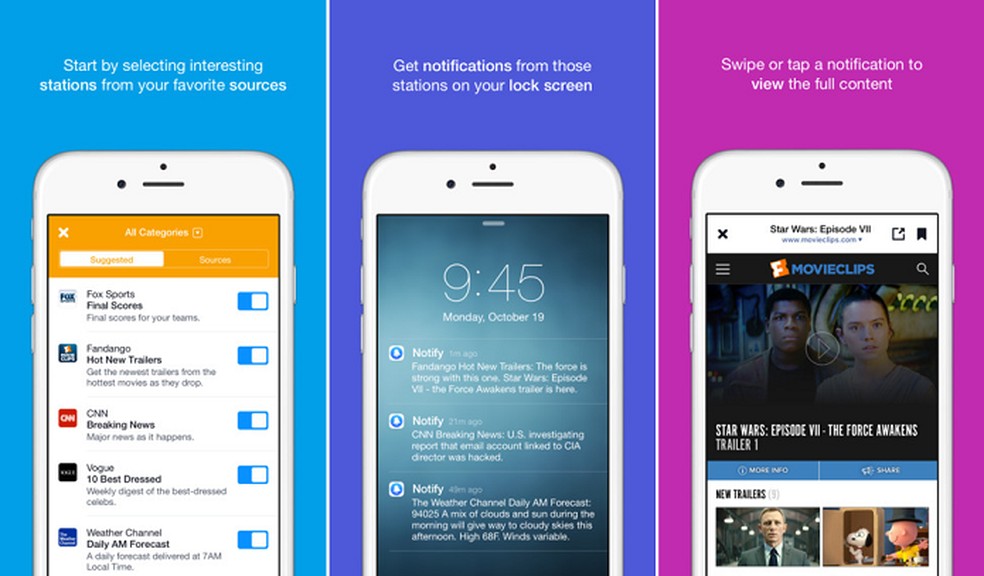
Notify was Facebook's news app Photo: Divulgao / Facebook
Facebook Deals was launched in April 2011 and was discontinued soon after four months of operation. The discount coupon service worked similarly to the famous Groupon, with a list of offers near the merchant, based on the device's GPS. You could check out discount coupons and share offers with other Facebook friends. To validate the coupon, simply check in from the Facebook account.
Its differential was that the merchants themselves set the values of their discount coupons, giving the establishment total freedom. However, the functionality didn't work out as the company planned. Available only in a few countries, such as the United States, Canada, France, Germany, Italy, Spain and England, the service was widely criticized by users and came to an end in August 2011.
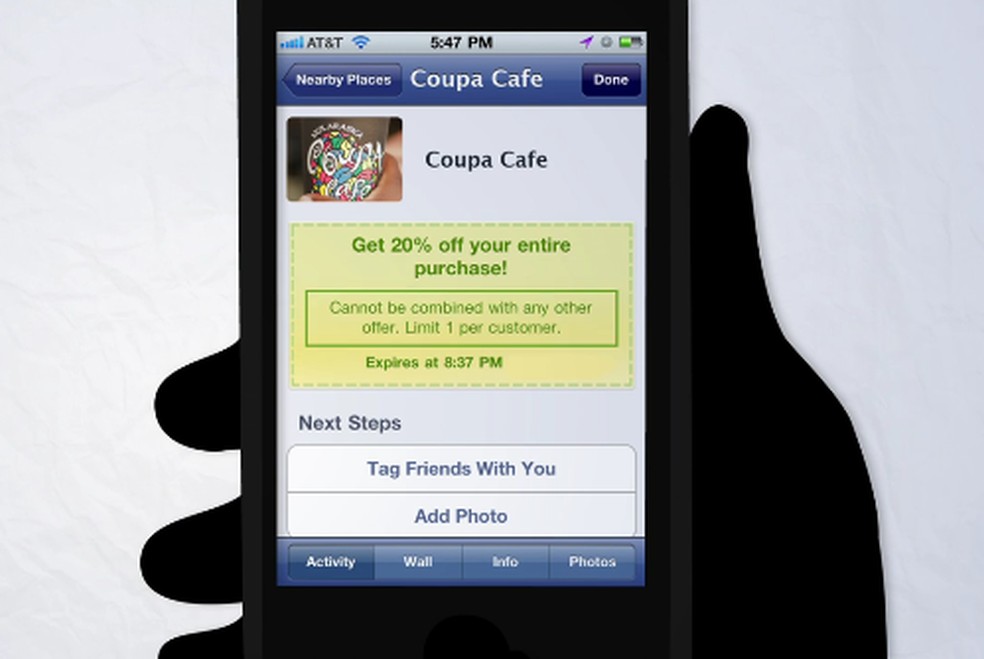
Facebook Deals offered discount coupons at merchants Photo: Divulgao / Facebook
3. Instagram Direct App
The initial idea was to create a separate app for Direct and later remove the chat option from the main app just like Facebook and Messenger. Available for Android and iPhone, the service was launched in only six countries in 2017, without arriving in Brazil until the end date. The rationale for creating Direct was to use the app only for sending images and messages privately, while Instagram would serve to share content with its followers more publicly.
The app turned out to be a replica of the Direct section of the main app itself, without adding any differentiated functions, prompting users to criticize its separation. With such disapproval, the service never left the testing phase and was never made available in other countries. Direct came to an end in early 2019.

Instagram Direct, social networking photo messaging app Photo: Gabrielle Lancellotti / dnetc
Facebook Credits was the payment system where users could purchase certain content within the social network through gift cards obtained from physical stores. This way, companies within the platform could monetize their content by offering products in a premium and paid version. With the tool, it would no longer be necessary to make payments via PayPal.
The service, launched in 2011, was quickly deployed in the most successful games of the time social network, such as FarmVille and Happy Harvest. The new form of payment was even quoted as a potential replacement for PayPal, becoming the official currency of Facebook. However, in 2012 Facebook announced the end of the service, and completely removed it from the social network in September 2013. Currently Facebook has decided to invest in a new attempt to create a virtual currency, the Pound.
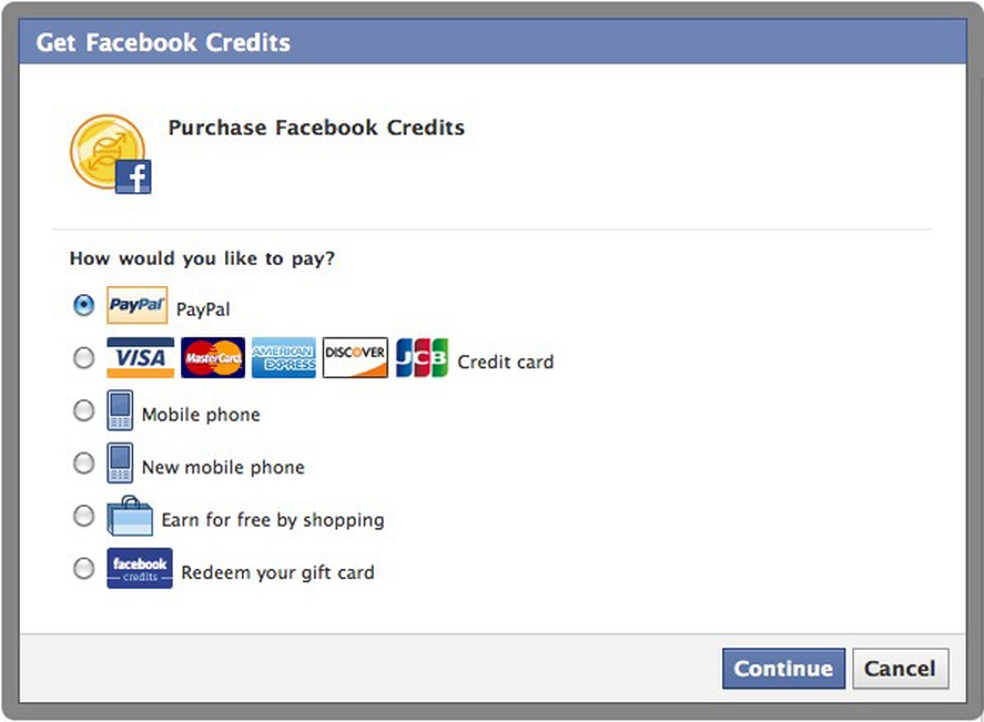
Credits was Facebook's attempt to create a virtual currency Photo: Reproduo / Mashable
After a failed attempt by Mark Zuckerberg's company to buy Snapchat, the social network tried to debunk the photo app with a new platform called Facebook Poke. Poke emerged in 2012 for iPhone with the proposal to interact with Facebook users. Among its features was the famous "nudge", which allowed to draw the attention of friends.
Facebook Poke still allowed sharing of text messages, photos and videos, which were missing 10 seconds after the message was opened by the recipient. However, the service did not receive as much attention from the general public and was deactivated 17 months after its launch in May 2014.
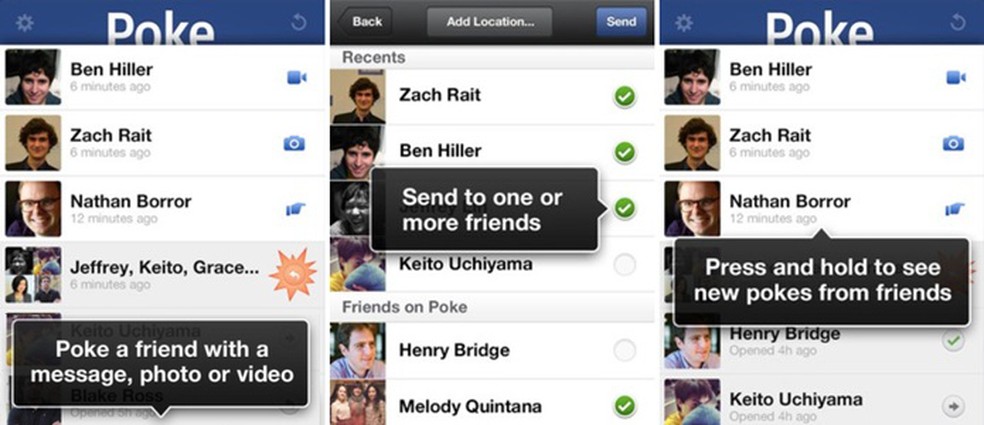
Facebook Poke allowed users to poke friends and share messages privately Photo: Disclosure / Facebook
Beacon was a tool that was part of Facebook's advertising system. The goal was to send Facebook user data to advertisers to create audience-oriented advertising and increase their ad revenue. The system became controversial shortly after its launch, as the service did not allow users to choose whether or not to share their data, resulting in privacy breach complaints.
Facebook Beacon soon became the subject of a collective lawsuit at Justia. In 2009, several users filed a class action lawsuit against the company for violating Facebook's promised privacy terms. The company intends to earmark $ 9.5 million to set up a specialized online data privacy foundation and to terminate the Beacon program activities.
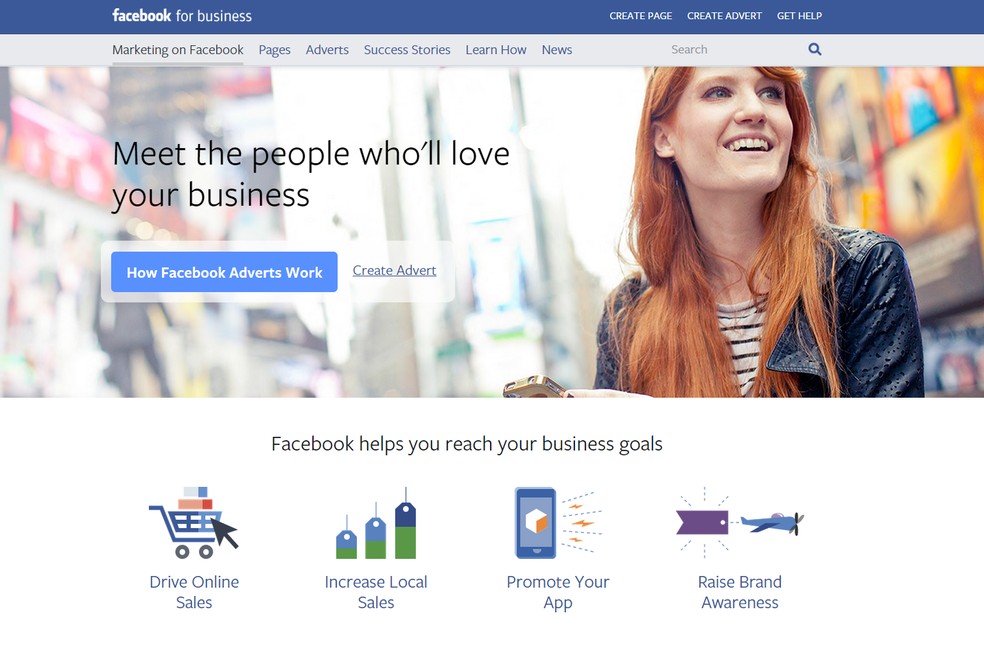
Facebook advertising network suffered from privacy breach press conference Photo: Reproduo / Facebook
In 2013, Facebook launched its own mobile phone in conjunction with HTC. HTC First became known worldwide as Facebook Phone and was the first and only device launched by the duo. The Android device has a unique interface called Facebook Home, inspired by the format of the social network itself. Previously, the company had failed to launch the Home application, and was heavily criticized by its users.
Despite the strong bet placed on the device due to the brand's great popularity, only 15,000 units were sold in the month of release. The low demand led HTC to lower the phone's sales value from $ 99 to just $ 0.99 per unit. The main complaint was the poor quality of the camera and the uninviting and difficult to understand interface.
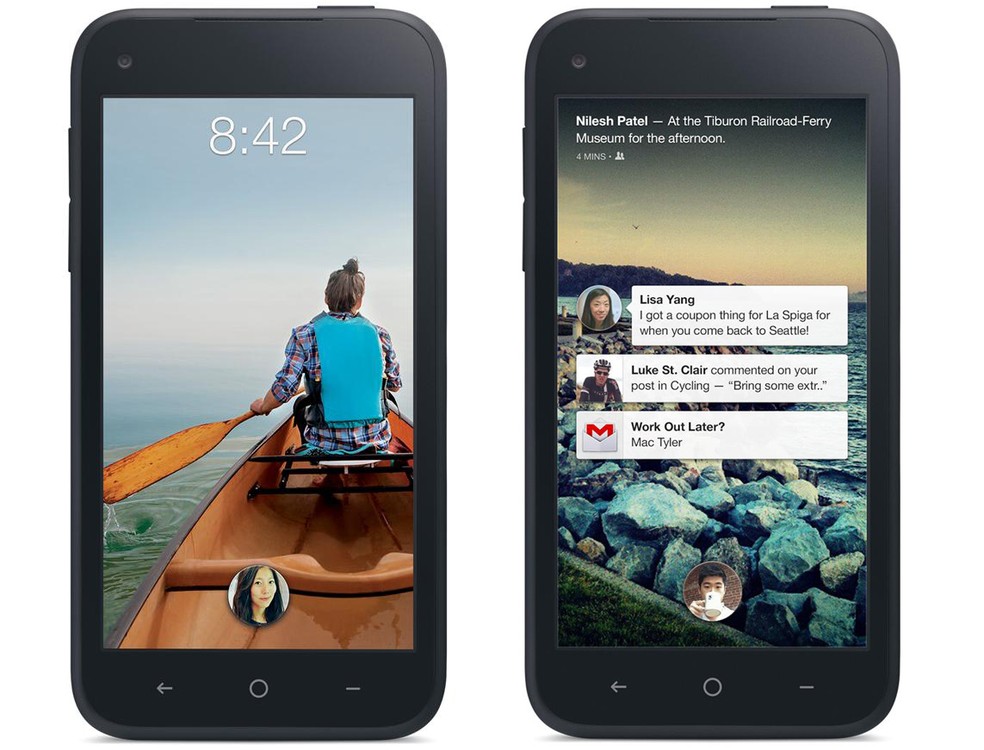
HTC First was a smartphone launched in conjunction with Facebook Photo: Divulgao / HTC
Trouble running videos on Facebook; what to do? Find out on the dnetc Forum.
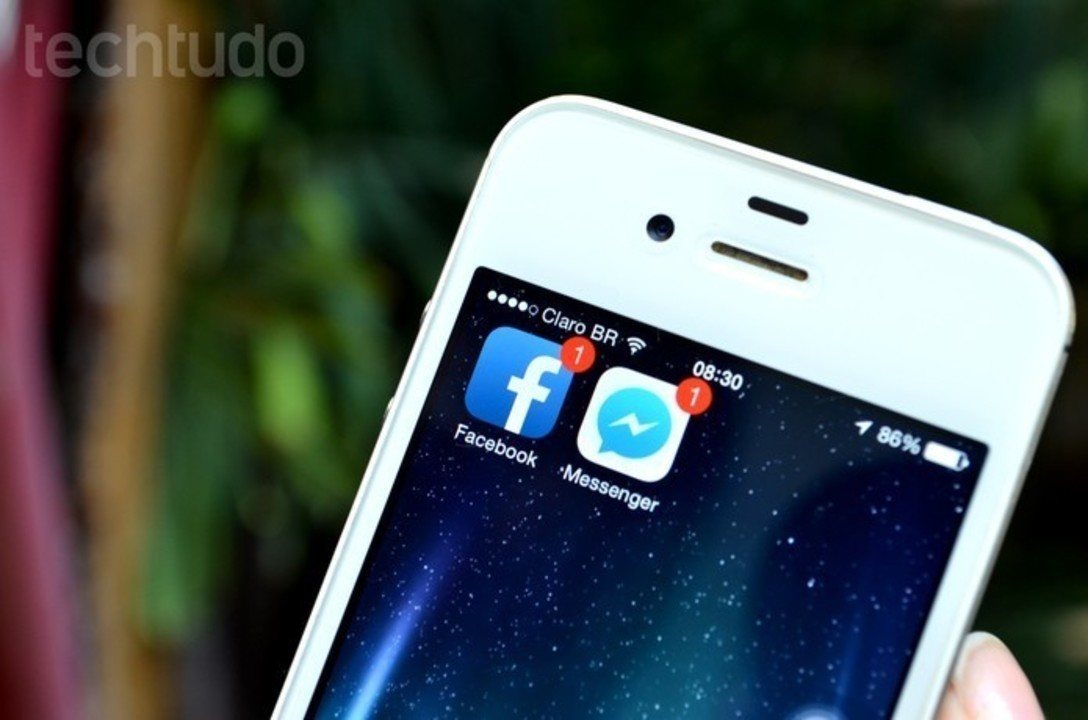
How to delete all Facebook Messenger chat messages
